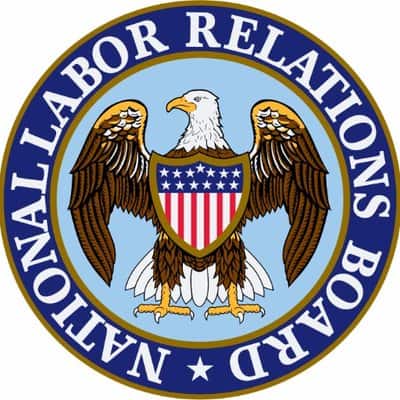Democrats Invent New Joint Employer Controversy

 There is a new invented controversy involving the National Labor Relations Board’s joint employer rulemaking, which seeks to clarify the definition of joint employer liability for businesses engaged in numerous business relationships (see here, here and here for more on Democrats’ partisan attacks on this rulemaking).
There is a new invented controversy involving the National Labor Relations Board’s joint employer rulemaking, which seeks to clarify the definition of joint employer liability for businesses engaged in numerous business relationships (see here, here and here for more on Democrats’ partisan attacks on this rulemaking).
Bloomberg reports that Democrats in the House Education and Labor committee are up in arms that the NLRB is planning on outsourcing to a third party the review of public comments on the agency’s proposed joint employer rule.
On March 14, according to the report, Rep. Bobby Scott (D-VA) and Rep. Frederica Wilson (D-FL) sent a letter to NLRB Chairman John Ring expressing that they are “extremely concerned” that the agency is repotedly planning to contract with a third party to review public comments on the new joint employer rule.
The letter goes on to state that the NLRB contracting with a third party to review comments “appears to be an alarming course of action.” They said the agency “risks further fueling public concerns that it is tainting the rulemaking with conflicts of interest,” especially if the comment review work goes to a law firm or other company that’s consulted or represented any organizations or associations that have submitted comments about the rule. The agency “already has the most qualified staff” for the task on its own payroll, according to the letter.
Despite the concerns of Reps. Scott and Wilson, contracting out certain aspects of the rulemaking process is common and uncontroversial.
For example, The Regulatory Group (TRG) provides the following services to federal agency policymakers: “Identifying rulemaking options and preparing Rulemaking Support Papers, “Supporting agencies in drafting regulations,” and “Analyzing and summarizing public comments [emphasis added].” Here is a link to a recent awarded contract to TRG that includes providing services for “comment analysis” to the Federal Motor Carrier Safety Administration. Also, see here for a list of TRG’s clients that includes numerous federal agencies.
In another instance, the Transportation Security Administration hired a contractor “to help expedite review, consolidation, and summary of public comments. The contractor conducted its review over the course of two months and provided TSA with a summary of issues raised by commenters at the end of August 2013.”
Federal agencies can receive hundreds of thousands of comment letters from the public in response to proposed rules. Many agencies, in particular a relatively small agency like the NLRB, cannot handle the review of such a large number of comments.
Clearly, there are limits on what a third party may contribute to rulemaking process. It would be impermissible to outsource a decisional role in the policymaking, but merely summarizing comments and handing over the analysis to the federal agency policymakers is routine.
Further, it appears that groups like TRG have only federal agencies as clients, so a conflict of interest is extremely unlikely.
Unfortunately, the House Democrats’ letter merely represents another political ploy to derail the NLRB’s joint employer rulemaking. However, if I’m wrong, and Rep. Scott and Rep. Wilson truly are concerned with this routine practice, they have a lot more letters to write.